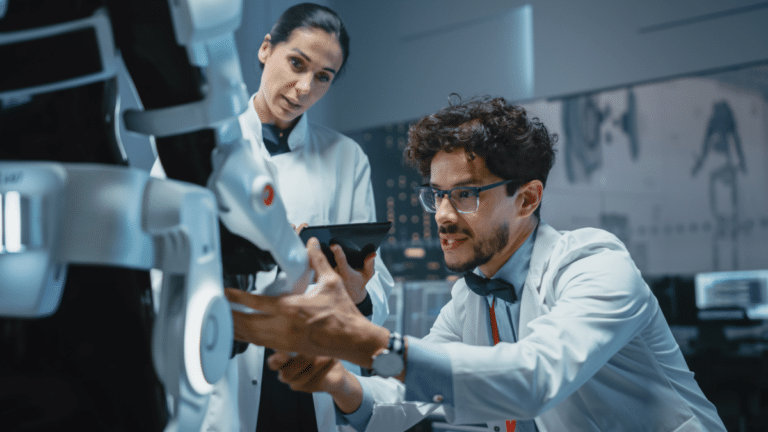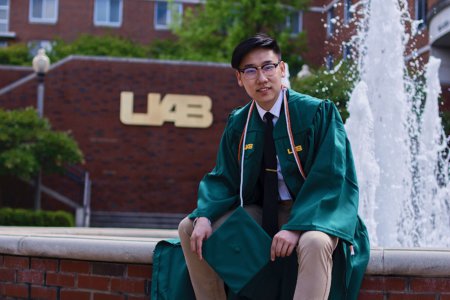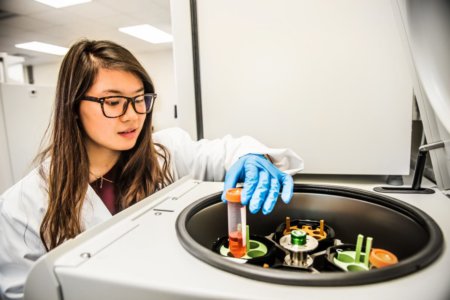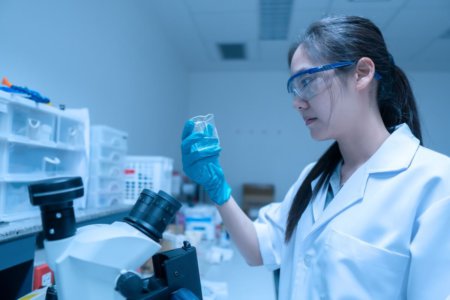
A future where prosthetics restore lost limbs with the grace of human movement or bionic contact lenses corrects partial vision with a touch. These are just a glimpse of the revolutionary products emerging from the field of biomedical engineering.
Fuelled by rapid technological advancements, bioengineering is merging engineering, biology, and medicine to create solutions that can save and transform lives. Its potential stretches beyond current marvels like radiation therapy and regenerative tissue growth.
Joining this interdisciplinary field starts with an education that equips one with specialised knowledge to work with equipment used for treatments, diagnoses and rehabilitation. A master’s degree makes you more desirable for entry into research and development and more employable if you have a non-engineering first degree. If you’re driven to make a real difference in people’s lives and want a promising career in this dynamic field, start with a postgraduate degree from these three institutions:
University College London

University College London is a global leader in Medical Physics and Biomedical Engineering research. Source: University College London
UCL, one of the best universities in the world, has stood out for academic excellence and disruptive thinking since 1826. Today, it holds the University of the Year 2024 award (The Times and Sunday Times Good University Guide), ranks ninth in the 2024 QS World University Rankings and is second in the UK for Research Power (Research Excellence Framework 2021).
The Department of Medical Physics & Biomedical Engineering is one of the largest medical physics departments in the UK with a long, distinguished history dating back to 1896. Their researchers have developed a world-first artificial intelligence (AI) system that has the potential to not only identify sight-threatening eye diseases but also predict health concerns including heart attacks, stroke, and Parkinson’s disease. They pioneered a technique to help surgeons differentiate between cancerous tumours and healthy tissue enabling them to operate more precisely. They were the first to monitor liver disease patients at home using smartphones. Their scientists created the technology which helped diagnose the first heart patients using new fibre optic sensors. Another team of researchers has developed wearable imaging caps that acts as a window into the brains of babies helping to diagnose and better understand conditions such as autism spectrum disorder and cerebral palsy.
These are just a sample of the world-leading research taking place here — and for which students have direct access to. Whether through teaching and research projects or events within the department, students here stand at the forefront of healthcare engineering and learn about the latest innovations from leading experts across clinical, industrial and academic sectors.
A postgraduate degree from this department can set you up to join the next generation of experts in this cutting-edge field. Responding to industry demand, the department has expanded its offerings to include the MSc Artificial Intelligence and Medical Imaging, which explores how these technologies can be deployed in clinical environments, to help improve the detection of disease and diagnosis from imaging data with the aim to enhance patient care. The MSc Medical Robotics and Artificial Intelligence covers key topics such as robot kinematics, motion planning, control and navigation along with data processing and analysis using modern methods that rely on Machine Learning and AI.
With the rising use of AI in healthcare settings, these MSc programmes are ideal launchpads for those seeking to contribute to emerging technologies such as the use of AI for computer and robot vision tasks, medical imaging or the development of surgical robots for minimally invasive surgery.
UC Berkeley

UC Berkeley offers two professional master’s programmes in bioengineering. Source: UC Berkeley/Facebook
Founded in 1998, UC Berkeley‘s Department of Bioengineering (BioE) is a part of the College of Engineering, consistently ranked among the top three engineering schools in the country by US News & World Report.
Berkeley BioE offers two professional master’s programmes, each catering to distinct ambitions. The Master of Translational Medicine, a unique one-year collaboration with UC San Francisco, equips engineers, scientists, and clinicians with the tools to shepherd innovative treatments from lab bench to bedside. This intensive programme delves into bioengineering fundamentals, disease mechanisms, engineering design, and clinical research, culminating in a collaborative capstone project where students translate theory into real-world solutions.
A 2017 graduate, Megan Sullivan echoes this sentiment, calling the programme a “perfect combination” that propelled her from bedside nurse to upstream innovator.
For those seeking immediate industry impact, the Master of Engineering in Bioengineering (MEng) provides a fast track to leadership roles. This intensive one-year programme equips graduates with a potent mix of technical expertise and entrepreneurial acumen. Choose from seven cutting-edge concentrations, from General Bioengineering to Synthetic Biology, and dive into the heart of groundbreaking research alongside world-renowned faculty.
Joining Berkeley BioE is like entering a vibrant community of passionate minds pushing the boundaries of bioengineering. Whether you’re a clinician seeking to revolutionise healthcare or an aspiring entrepreneur eager to translate ideas into tangible solutions, Berkeley BioE empowers you to become the changemaker the world needs.
National University of Singapore

NUS provides programmes leading to advanced degrees and a graduate certificate programme tailored to accommodate diverse interests and aspirations. Source: National University of Singapore/Facebook
Established in 2002, the National University of Singapore‘s Department of Biomedical Engineering (BME) thrives on a vibrant blend of expertise. Its faculty, drawn from engineering, life sciences, and medicine, are from diverse backgrounds and often hold joint appointments with prestigious institutions, reflecting the department’s commitment to multidisciplinary research and education.
BME’s core strengths lie in areas like Biomaterials, Biomechanics, and Bionanotechnology, paving the way for groundbreaking advancements in Tissue Engineering, Medical Imaging, and Medical Devices. Last year alone, the department secured over 4.5 million Singaporean dollars in research funding, fuelling breakthroughs like Professor Zhang Yong’s “up-conversion” nanocrystals for treating melanoma and Associate Professor Chen Nanguang’s progress on diffuse optical tomography, a potential game-changer in cancer detection.
The department offers advanced degrees and graduate certificates such as the MSc (Biomedical Engineering). This programme, meticulously crafted to nurture “holistic engineers,” equips students with the analytical prowess and biomedical knowledge needed to tackle healthcare challenges from engineering and medical perspectives. Graduates stand to contribute to the booming healthcare innovation landscape and address the long-term prominence of healthcare issues in our ageing society.
With elective courses like Cellular Bioengineering and Medical Robotics, BME students can carve their paths within the realm of healthcare technology. Whether they envision careers in academia, research, or industry, the department’s rigorous curriculum and renowned faculty provide the perfect launchpad for a future at the forefront of healthcare advancements.
*Some of the institutions featured in this article are commercial partners of Study International










